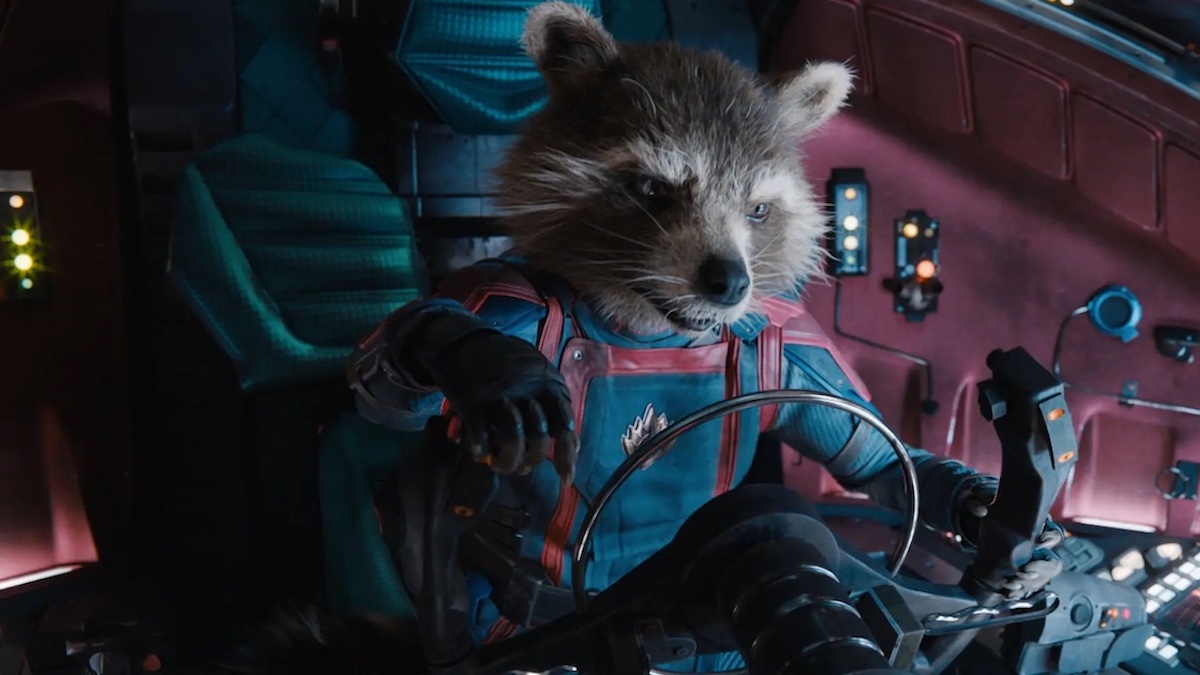In the realm of cinematic storytelling, few franchises have captured the hearts of audiences quite like the “Guardians of the Galaxy.” With its vibrant characters and exhilarating escapades, this series has often ventured into profound thematic territory. The latest installment, “Guardians of the Galaxy 3,” is no exception. As the plot unfolds, viewers are thrust into a narrative that navigates the intricate web of animal cruelty, presenting a multi-faceted exploration that extends beyond mere entertainment.
At its core, the film serves as a poignant critique of society’s indifference toward the treatment of sentient beings. Through a combination of compelling storytelling and striking visual imagery, it highlights the brutal reality that many animals face in experimentation and exploitation. The thematic gravitas resonates particularly well with audiences, especially those who are ardent advocates for animal rights.
One of the most significant narrative arcs revolves around Rocket, a genetically modified raccoon who grapples with the haunting repercussions of being subjected to inhumane tests. His journey is emblematic of the plight faced by countless animals who endure suffering at the hands of humans. This aspect of the film resonates deeply; it challenges viewers to confront uncomfortable truths about animal experimentation and the ethical implications involved.
This exploration of animal cruelty is not merely relegated to Rocket’s backstory. Rather, it permeates the overarching narrative, providing a rich tapestry that invites discussion and reflection. The film adeptly juxtaposes the fantastical elements of its universe with stark realities, compelling viewers to reconcile their affection for the characters with the ethical dilemmas they epitomize.
Through its character development, “Guardians of the Galaxy 3” fosters empathy, urging audiences to cultivate a deeper understanding of the emotional complexities inherent to these sentient beings. It challenges the notion that animals are mere commodities or tools for human benefit, stirring a sense of moral responsibility. The intricacies of Rocket’s personality, imbued with anguish and resilience, serve as a mirror, reflecting the often-ignored struggles of real-world counterparts.
Moreover, the film’s aesthetic is a powerful ally in conveying its thematic messages. The cinematic techniques employed evoke a visceral reaction, compelling viewers to viscerally engage with the narrative. The juxtaposition of vivid, colorful landscapes against the stark and often disturbing imagery related to animal testing creates a jarring effect that fosters a heightened emotional response. This duality is essential; it encourages audiences to ponder the normative assumptions surrounding animal rights.
Furthermore, the narrative scaffolding reveals a broader commentary on the systemic nature of animal cruelty. Throughout the film, the protagonists’ fight against an oppressive regime underscores the need for solidarity in the quest for justice — not just for individuals, but for entire species. This thematic precept resonates with the calls for activism in our own world, where collective efforts can indeed lead to meaningful change.
The ethical dilemmas presented in “Guardians of the Galaxy 3” prompt viewers to engage in conversation regarding animal welfare policies and practices. It lays the groundwork for discussions around the imperative need for humane treatment across all sectors. Through a science fiction lens, it challenges audiences to question the moral implications of their consumption habits and advocate for the voiceless, emphasizing a nexus between entertainment and social responsibility.
In terms of character interactions, the film paints a compelling picture of companionship and loyalty, highlighting that the bond between humans and animals is symbiotic. This relationship is depicted as one grounded in mutual respect, rather than dominance or exploitation. Such portrayals are critical in shifting societal perceptions; they encapsulate the essence of advocacy and the need for a paradigm shift in how animals should be regarded — as sentient beings deserving of dignity and respect.
Moreover, the film does not shy away from depicting the stark realities of grief and loss, illustrating the tangible impact that animal cruelty has on individuals and communities. These emotional currents draw viewers deeper into the narrative, prompting reflection not just on the characters’ journeys, but also on the broader societal implications of cruelty. Such depth denotes a purposeful storytelling approach that facilitates understanding and empathy between disparate groups.
In conclusion, “Guardians of the Galaxy 3” goes beyond mere entertainment; it is a clarion call for awareness and introspection concerning the maltreatment of animals. The film poignantly highlights the intersections between compassion, justice, and the powerful stories that emerge from the otherwise marginalized voices of non-human beings. It urges both fervent advocates and indifferent spectators to reconsider their stance on animal rights and to recognize that through understanding must arise action. As audiences emerge from the theater, it is hoped that they carry with them not only the echoes of a thrilling cinematic journey but also a renewed commitment to advocating for those who cannot speak for themselves.








